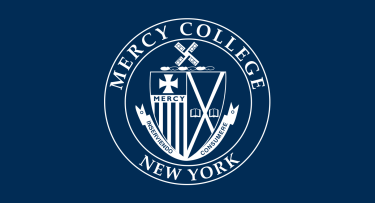
Mercy professor Steven DeRosa explores director Alfred Hitchcock’s career in a recent article published in The Worcester Review and in a recent Media Studies course at Mercy.
Years ago, DeRosa realized that while scholars often examine Hitchcock’s directing decisions, they almost never focus on the screenplays or screenwriters. He contacted screenwriter John Michael Hayes—Hitchcock’s most prolific collaborator—thinking that he would write an academic study of the four films they made together. But after one conversation with Hayes, DeRosa realized that there was much more to the story. In 1953, Hitchcock was in a commercial and creative slump. After hearing some of Hayes’s scripts read on the radio, he proposed a collaboration. Hayes’s screenplay for Rear Window (1954)—their first film together—emphasized the love story at the heart of the plot, a decision that ultimately helped Hitchcock reconnect with his audience and regain acclaim.
Over time, however, their professional relationship soured and ended in arbitration. DeRosa explores the early days of this collaboration in his article in the 2017 edition of The Worcester Review and the full history in his 2001 book, Writing with Hitchcock: The Collaboration of Alfred Hitchcock and John Michael Hayes. DeRosa brought his love of Hitchcock and Hayes to Mercy in the Fall 2017 Media Studies course Hitchcock Disciples. “The term ‘disciples’ includes collaborators and filmmakers who have been influenced by Hitchcock, including Martin Scorsese and Steven Spielberg,” he explains. “The field of film studies as a whole owes a great debt to Hitchcock, so anyone who studies film is, in a sense, a disciple of Hitchcock.” As students watched and analyzed Hitchcock’s films in the course, they found their own topics of interest. For example, one recent student approached her analysis from a technical perspective—such as analyzing the camera work and editing that goes into each scene—while another focused on characters’ gender roles. DeRosa supplemented the course with items from his personal archives, including 35mm film reels, screenplays, advertising posters, and correspondence between Hitchcock and Hayes.
Click here to watch our students’ analyses of Alfred Hitchcock.
Trips to the movie theater in Yonkers—where students watched Hitchcock films on a large screen and discussed them with a larger audience—formed central experiences in the course. As student Helen Wilkin explains, "It makes you feel the entire experience. It's like seeing the film for the first time. And then afterwards, [discussing the films with] more people than in our class, more people with different perspectives, it broadens the mindset, how you really see his films." In the spring 2018 semester, DeRosa is teaching a course about Hollywood’s Golden Age, which will involve even more movie screenings. He hopes members of the Mercy community will once again join his students.
